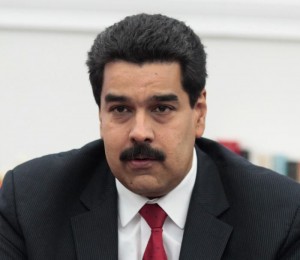After two straight years of decline in enrollment, Houghton’s numbers have risen again. “We are back up,” said Eric Currie, Vice President for Enrollment Management.
There are 302 new students this fall, more than a ten percent increase compared to last year’s incoming class of 277. Of those 302 students, 50 are transfers and 26 are international. China, Cameroon, Nigeria, Uganda, and Venezuela are just a few of the countries represented by the new students at Houghton.
In order to bring numbers up this semester the admissions team, alongside the marketing and the communications offices, thought of new ways to advertise Houghton College. “We started with updating the branding of the college,” said Ryan Spear, Associate Director of Admission. Through things like the “Rethink” campaign, Spear said the admissions team wanted to challenge prospective students to reconsider their education and what it means to them.
In an effort to reach out to prospective students, the admissions team made appearances this summer at events such as Soulfest, Creation, and Kingdom Bound. Also, the addition of new sports teams and the Kerr-Pegula athletic facility assisted in the increase in numbers of enrollment.
 Admissions attempted to emphasize the personalization of the application process, to which Currie and Spear attribute the success of incoming new students. Things such as personalized acceptance letters and arranging a perspective’s visitation day in an attempt to accommodate their interests are a few things that “set Houghton apart from other schools,” said Spear.
Admissions attempted to emphasize the personalization of the application process, to which Currie and Spear attribute the success of incoming new students. Things such as personalized acceptance letters and arranging a perspective’s visitation day in an attempt to accommodate their interests are a few things that “set Houghton apart from other schools,” said Spear.
Even though it is time consuming to personalize so much of the prospective student process, it is certainly worth it to Spear. Prospective students ranked Houghton very high in personal communication. “My acceptance letter was really sweet and personal, it included things from my application and mentioned my recommendations which was cool,” said freshman, Erica Barney.
Admissions counselors helped incoming students to prepare and eager to attend Houghton. Barney said that her admissions counselor was “really sweet and right off the bat and was talking to me about what to look forward to when I came to Houghton.”
It wasn’t always easy getting potential students to enroll though, Currie said economics was the largest struggle this past year. In a survey taken by prospective students, the majority said the greatest barrier of being unable to attend Houghton was finances. Spear said fear of loans and affordability of tuition kept potential students from applying to Houghton.
Now Houghton has a partnership with the Loan Repayment Assistance Program foundation (LRAP) to help out with those financial issues. Spear said that the LRAP serves as a “safety net for students.” This program covers up to 100% of all federal, private, and Parent PLUS loans at no cost to the student or parent. Spear said, “It addresses people’s financial confidence and allows students to pursue their calling right away.”
Admissions is hoping to meet their stretch goal of 315 enrolling new students in the fall of 2015 and is already preparing for next year, Currie said,“We are already in full swing.” Admissions recently ran their first email campaign and have already started to receive applications from prospective students. Spear said admissions staff will continue the personalization that is so well known of the college.
Admissions is reaching out to the largest number of students ever, visiting over 150 college fairs and 225 high schools this fall. Though that is likely to draw in many perspectives, the admissions team is trying not to get ahead of themselves. “We are trying to be realistic on what we can attain,” said Currie.

